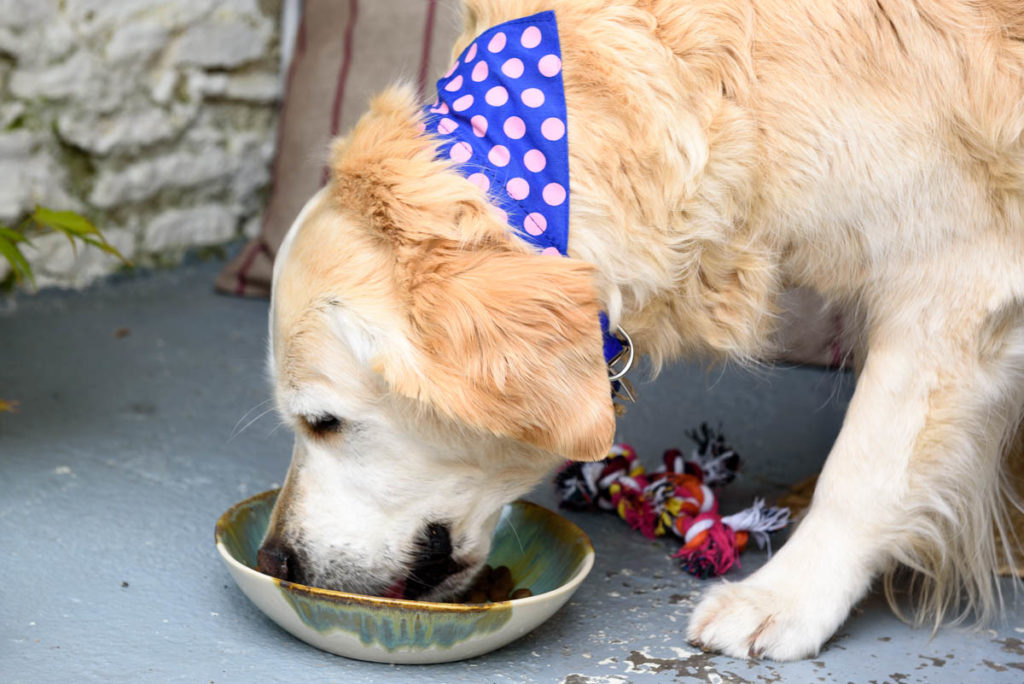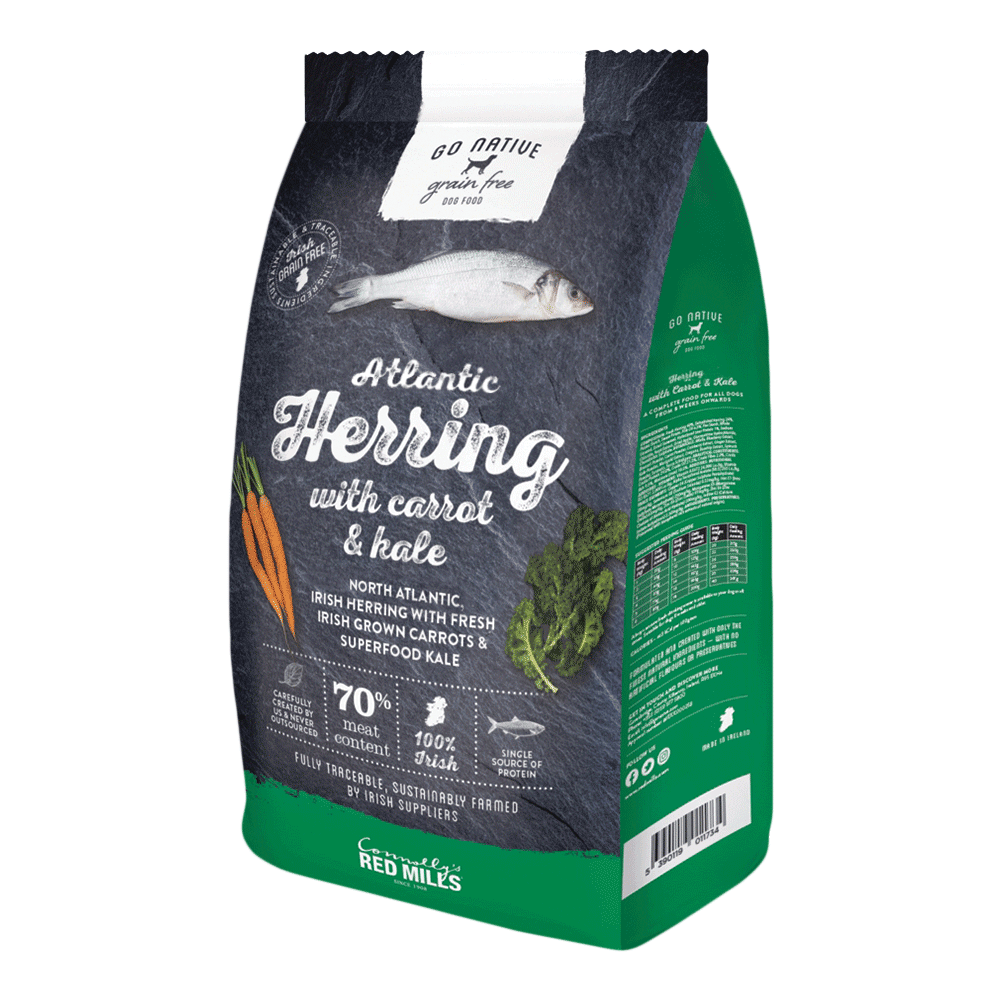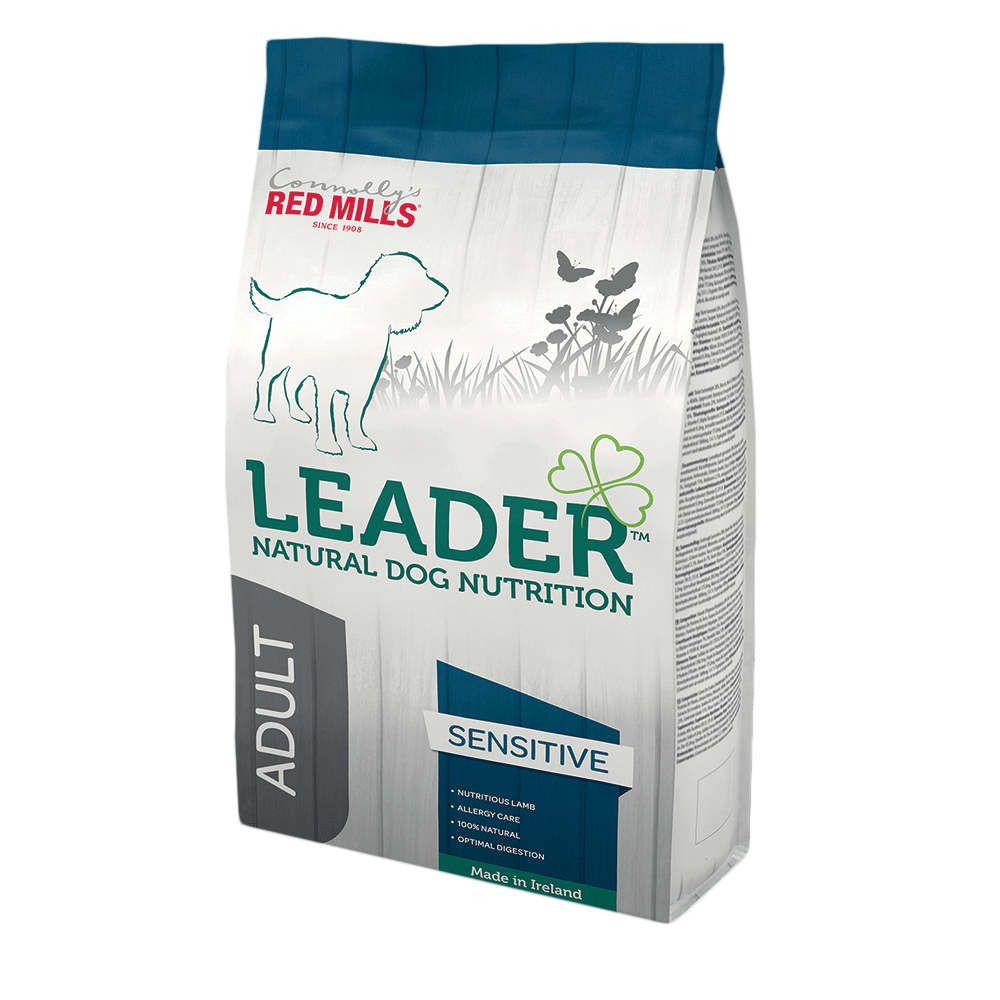Here Are the Best Dog Foods for Poor Digestion
Share
[Sassy_Social_Share]Some dogs have a dodgy digestive system. They might have frequent diarrhoea or chronic loose stools. Or they might vomit often or just be very flatulent. A whole host of different factors can cause this, and to find the right food for your dog, you have to know what is going on. Your vet is the first stop. They can assess your dog and either diagnose or rule out any illness that could be causing these symptoms. When illness is ruled out, dog owners are still left asking what foods are good for their dog’s digestive system.

Some dogs have food allergies and intolerances. For those dogs, it is important to figure out which ingredient is causing the problem and then completely eliminate it from their diet – including treats. Some dogs suffer poor digestion because they are nervous or high-strung. In some cases, all they need is some time and lots of affection and reassurance. This is not unusual with rescue dogs who may have suffered abuse or neglect. Other dogs become nervous because they don’t have enough of an outlet for their energy or because they are in a noisy, hectic environment and can’t cope with it. Making some changes around the house and talking to your vet about treating their anxiety can improve things dramatically. Other dogs, however, just have a delicate tummy. Their owners need to know what foods are good for a dog’s digestive system.
What Foods Are Good for a Dog’s Digestive System?
The answer to this question won’t be the same for every dog. But there are some common issues to consider when selecting the right dog food for your dog with a sensitive tummy. The labels on dog food can be difficult to decipher, but these are some key things to consider.
- Fibre – Getting the right amount of fibre is important for a dog’s digestion. Too much or too little can cause problems. What is fibre? It’s indigestible plant matter. Soluble fibre absorbs water as it moves through the digestive tract ensuring that stools are neither too loose or too hard, preventing both diarrhoea and constipation. Insoluble fibre regulates the speed of food moving through the digestive tract. The right balance helps your dog maintain healthy digestion. For most dogs, fibre should be two or three percent of their food, although some dog foods have as much as ten percent.
- Protein Source – Protein is a basic component of the canine diet. The source of the protein is as important as the amount. Meats are the most common food allergens for dogs. If your dog’s food is uses beef, for example, try replacing it with a food with a different protein such as chicken, lamb or fish and avoiding treats that include beef. After six weeks, you should have see an improvement if this was the problem. The quality of the protein also matters. Look for a dog food that uses locally produced meat.
- Fat Content – Dogs need some fat in their diet. In the right amount, it provides energy and puts some shine in their coat. But too much fat can cause problems because it is harder to digest than other components of their food. If you’re looking for foods that are good for a dog’s digestive system, look for foods that are low in fat. Fat and oil should not be the top ingredients in dog food. This doesn’t mean your dog with the dodgy tummy needs to be on a food designed to help shed weight, just on one that isn’t overloaded with fat.
The quality of the ingredients matters. A fast food burger isn’t providing the same nutrition as a steak, although both are beef. The same principle applies to dog food. Look for a brand that uses locally produced, traceable ingredients.
Other Ingredients: What Helps and What Hurts
When you are looking into what foods are good for a dog’s digestive system, you’ll encounter all sorts of ingredients that are added to dog food beyond the basics. Some are good, while others are merely cheap filler than can wreak havoc with a sensitive dog’s digestion. Colourings are an example of a totally unnecessary ingredient. Dogs don’t care what colour their food is. Preservatives are necessary to ensure the food stays good. But there are many other ingredients in dog food, and if you are searching for the most digestible food it helps to know which are helpful.
Lamb is a great source of protein for dogs with a sensitive digestion, and fish is also good. Dairy products tend to irritate the stomach. Yes, dogs love cheese and will beg for any kind of dairy product, but if you dog is prone to stomach upset, it is best for them to avoid dairy completely. Eggs can be very good for their coat, but fried eggs include a lot of grease. Boiled is easier on the digestion. Surprisingly, beef doesn’t agree with some dogs so if your dog has a delicate tummy it isn’t the best choice.
Pumpkin is excellent for dogs who suffer digestive problems. Chockful of fibre, it stabilises digestion preventing both diarrhoea and constipation. The easiest option is to find a food or treat that includes pumpkin such as our Go Native Dental Super Sticks. Ginger is widely hailed for its power to reduce nausea, and it works for dogs too. Ginger both reduces vomiting and helps with constipation; basically it seems to keep everything moving along in the right direction!
When you are looking to improve your dog’s diet, keep one key thing in mind. The foods that are good for a dog’s digestive system are those that are made with fresh, wholesome ingredients.







